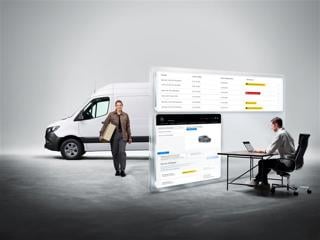Strict service maintenance and repair controls alongside a zero tolerance attitude to unauthorised expenditure means Home Retail Group will see a cost saving in 2012 of approximately £400,000.
Remarkably, Home Retail Group’s fleet maintenance costs on a pence per mile basis are lower today than they were 18 years ago with the average maintenance costs per vehicle down by a massive £93 a year.
Today maintenance pence per mile costs on the 1,108 company car fleet are 2.20p compared with 2.33p when the fleet numbered 226 cars in 1995. Taking inflation at 2.5% per annum into account it equates to an estimated total maintenance cost saving this year of £400,000.
A
Peter Weston (pictured), transport manager at Home Retail Group, the parent company of Argos, Habitat and Homebase, said: “Today, vehicle reliability is excellent so maintenance costs are easy to predict. A good partner such as
And the imminent roll-out of a range of highly sophisticated analytical tools by
Analytical tools
Chief among
Mark Bryan, managing director at
Having quick access to their fleet’s information enables fleet operators to easily identify areas of cost and build a predictive analysis of potential future areas of expenditure. As a result, a range of targeted initiatives can be introduced to drive down identified cost areas.
Bryan said: “Having strict service maintenance and repair controls together with a zero tolerance approach to unauthorised work, while using technology to integrate and monitor all expenditures - including routine maintenance, breakdown and recovery, tyres and ancillary costs and information from in-vehicle telemetry devices - empowers a fleet manager and allows for the easy identification of all out of the ordinary costs, which enables appropriate interventions to be activated when necessary.”


















Login to comment
Comments
No comments have been made yet.